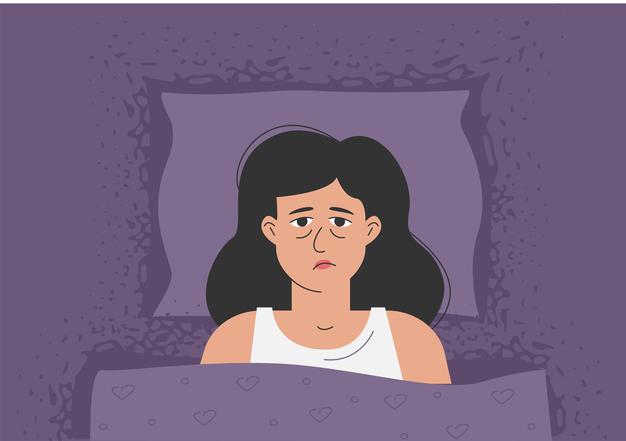Melatonin, released by the pineal gland, regulates the circadian rhythm and induces sleep. It is a naturally created hormone that is responsible for helping us in falling asleep. It also maintains our sleep schedule, so a lack of melatonin can lead to sleep disorders, such as insomnia.
By using the day and night pattern, the circadian clock, believed to be located in the brain, helps us in falling asleep at the same time each day.
However, because of using devices, such as smartphones and laptops, that emit blue light, stress, anxiety, and a lack of discipline, the circadian rhythm gets thrown out of order, leading to various sleep disorders.
Let’s look at melatonin for sleep in more detail.
Melatonin – The Sleep Hormone
Pineal glands release melatonin to tell our body that it's time to fall asleep.
Because of melatonin, cells in our body receive the signal that it's time to recover. The temperature of the body falls as more and more melatonin is released by our body, and soon we find ourselves snoring and enjoying a blissful sleep.
Why use Melatonin Supplements?
Although melatonin is naturally created by our body and also available through natural sources such as fruits and vegetables, it can behoove you to take melatonin supplements regularly.
A deficiency of melatonin can lead to many health problems. For one, it can cause insomnia and hypersomnia. Further, you may feel stressed, lethargic, anxious, irritable, and depressed because of a lack of sleep or lack of feeling well rested.
Melatonin for Sleep Disorders
Although you may try to maintain a proper sleep schedule, your body may rebel because of underlying health issues, stress, or anxiety.
Here are the common sleep disorders for which melatonin is effective:
Insomnia
Often resulting from stress, anxiety, hormonal disturbances, or jet lag, insomnia causes a difficulty in falling and staying asleep.
People with insomnia often report the following symptoms:
Depression
Anxiety and irritability
Impaired cognitive function
Weight gain
Despite the type of insomnia you may have, you can rely on melatonin to fall asleep faster. Melatonin can be very effective against mild to moderate cases of insomnia.
Non-24-hour Sleep-Wake Disorder
Circadian rhythm in people with this sleep disorder often goes out of sync. The internal clock of the body fails to reset, so people this condition cannot maintain a proper sleep schedule.
This condition may also cause insomnia and hypersomnia like symptoms.
Taking melatonin can reset the circadian rhythm and help people with this sleep condition to fall asleep at the same time regularly.
Restless Leg Syndrome
Inducing an overwhelming need to move legs, restless leg syndrome can cause irritation, tingling, and an inability to fall asleep.
People with Parkinson’s disease or ADHD often suffer from restless leg syndrome.
Taking melatonin before going to be can induce sleep faster and help provide some relief from this syndrome. However, you can also look at other medications such as Gabapentin that can help with RLS.
Consult your doctor before taking any medicine.
Related Post: Melatonin Supplement






